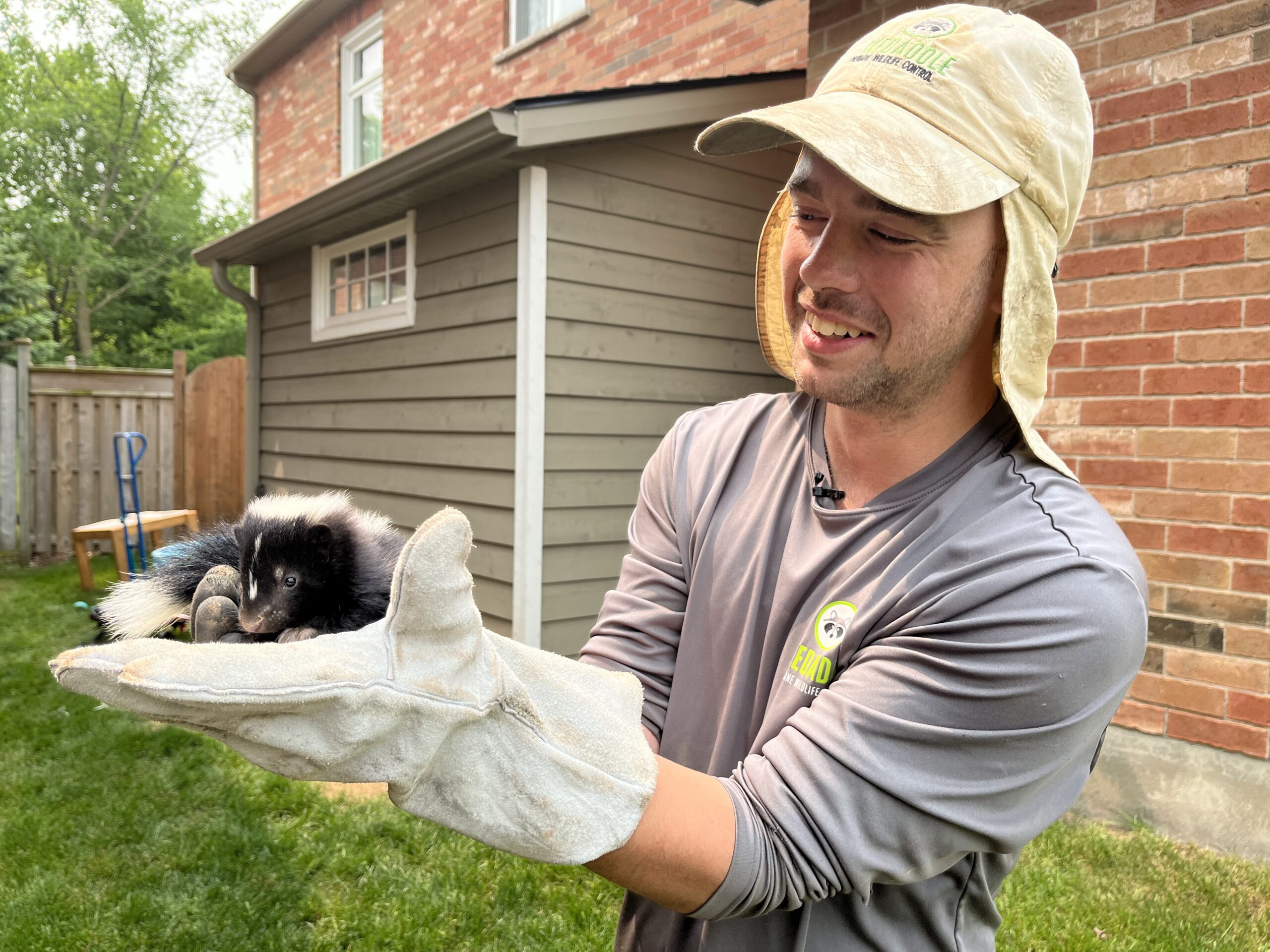The pungent defence mechanism of skunks is among the worst odours in the world. When the animal releases its spray, the stench lingers in the neighbourhood, refusing to dissipate for several days or weeks. To avoid traumatizing your nostrils, contact skunk removal in Coquitlam as soon as you spot skunks in your area.
The animals are cute and often harmless. They are nocturnal and relatively shy and docile. That said, as with any wild animal, skunks will scratch, bite, or spray if they feel threatened. It is often poor domestic pets that get the brunt of a skunk’s wrath because pets are curious or playful. Homeowners can protect their pets by protecting their yards and property.
Skunks usually move in because an area offers protection and food. If you can limit the animal’s sense of safety, you can reduce the risks of it making a den on your property.
3 Ways To Deter Skunks From Your Property
Learning how to deter skunks from your property is straightforward. You must understand what motivates them, such as food, water, and shelter. By eliminating anything that contributes to a skunk’s survival, you effectively ban it from your property.
1. Eliminate Potential Den Sites
Skunks may create their den sites or take advantage of abandoned or pre-existing spaces. The animal can use its strong front claws to burrow into the ground but to conserve energy, it usually takes up residence in hollow logs, tree stumps, or other cavities. Skunks may also take over abandoned fox or groundhog burrows.
In residential neighbourhoods, skunks favour the protected areas under decks or sheds. Sometimes, if the crawlspace under a home does not have adequate protection, skunks will create a den site there. Homeowners should block openings using hardware cloth or other wear-resistant materials. When blocking the opening, homeowners should bury the wire mesh to ensure skunks cannot dig under it.
2. Remove Food Sources
Skunks are opportunistic eaters. Their diet comprises mice, rats, birds, various insects, fruits, nuts, and garbage. If a skunk finds a territory that offers a steady food supply, it establishes a den.
You can reduce the risk of skunks burrowing on your property by keeping up with lawn maintenance, treating insects in the lawn, and maintaining your lawn on a regular basis. If you garden, put up a sturdy garden fence. Also, if you install bird feeders, clean up under them daily. Finally, you can secure all trash cans by installing critter-proof lids and locks or storing garbage cans indoors.
Chafer beetles, also known as June beetles, are insects that can inadvertently attract skunks to your property. These beetles are known to be particularly appealing to skunks due to their high-protein content and soft exoskeleton. Skunks are attracted to chafer beetles as a food source, often digging up lawns and gardens in search of them. It is important to take measures to control chafer beetle populations to reduce the likelihood of skunk activity on your property.
Homeowners who take all the necessary precautions and still find evidence of an active skunk population on their property should call skunk removal services.
3. Prevent Property Access
Sometimes, learning how to get rid of skunks comes down to establishing barriers. The striped skunk is not an efficient climber. While the animal can climb, its claws are a hindrance.
Homeowners can install fences to prevent skunks from entering their property. A vinyl privacy fence is a good option. The smooth surface is hard to grip, so the animal is more likely to use the fence as a boundary or guide unless it smells something too tempting on the other side.
Humane Skunk Removal in Coquitlam
Skunks may still end up on a property even if homeowners take all necessary precautions. If you notice skunks on your property, contact Skedaddle Humane Wildlife Control to schedule a property inspection. A team of qualified wildlife technicians will search your property to find burrows and anything that might motivate the animal. After the initial assessment, the team will provide an estimate and proposal for solutions to your wildlife problem; solutions that ensure the safety of all humans and animals.




